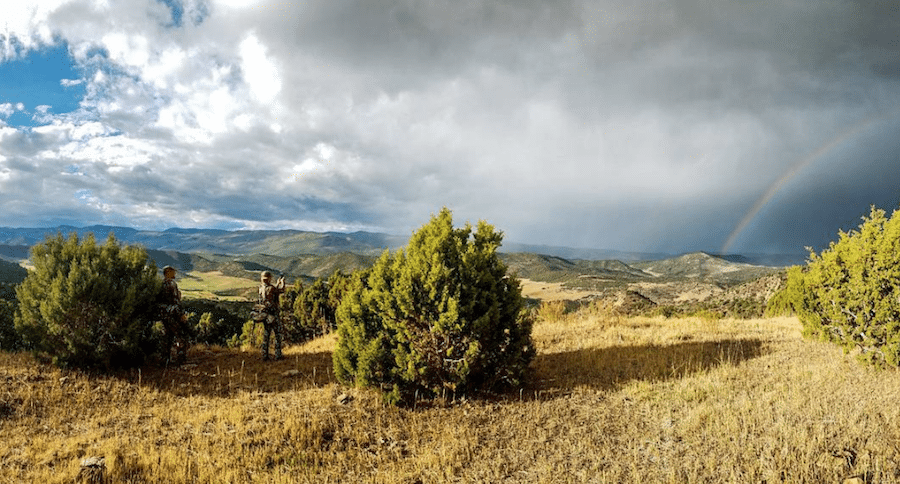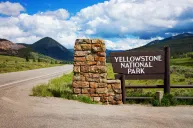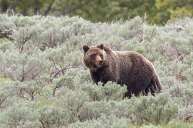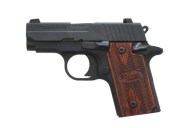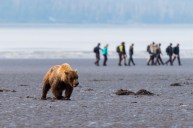If you are in the backcountry, you better have some self-defense on your hip, just in case.
By nature, outdoorsmen spend a lot of time out in the farthest corners of America. Most of the time (but not all the time) those places are safe and sound with little risk other than perhaps getting lost. However, in other parts of the country, black bears, grizzly bears, mountain lions, or other large predators might give a person pause.
Bear spray is great if you see them coming, but keep in mind, if you are in the middle of a wilderness area, that may not be the best option that could be available. With that thought in our heads, let's look at some options for some backcountry sidearms that will get the job done.
While doing the research for this quick list of popular guns, I decided to take myself and my opinins out of it, and instead ask the people who actually carry self-defense weapons every day. Some are hunters, some are hikers, but one thing is in common, they are all prepared should the worst scenario take place.
Obviously, having more gun that what you need would make the most sense, but that may not be good for every situation. Some answers could surprise you.
Also, as you will see, the responses are largely region specific. If you aren't in bear country, there is little need for a bear gun. Those in an Alaskan wilderness, Idaho, Colorado, Montana, Wyoming, or parts of Canada may feel differently.
More than likely you will recognize a few of these names as well. You see their pictures and read their stories throughout social media regularly. If they trust these backcountry sidearms, so should you.
Smith and Wesson .44
If you have spent some time looking at hunting videos on YouTube, then the odds are good you have come across Outdoors Allie. Her huge following suggests she knows a thing or two and her real unscripted videos only go to prove it.
She hunts elk, mule deer, and other big game all over the American West, and as most know, that can be dangerous. Here is what she had to say.
https://www.instagram.com/p/BoFobl8FwDh/?taken-by=outdoors_allie
"To be honest with you I rarely carry a side arm, however my boyfriend/cameraman Nick always has one and goes with one of two options. If we are in grizzly country he carries a Smith and Wesson .44 and if we're not in grizzly country he carries a Ruger SR9C 9mm. I'm currently in the the process of finding out what works for me and hope to have one narrowed down soon."
As I have come to find out, this simple answer is fairly common. Backcountry sidearms that might be good for one place might not be good for another. Situational awareness is key. For example, a semi-auto could be great in pig country, but maybe a big bore revolver works better elsewhere.
.45 Smith and Wesson 1911
Mike Malchow is a full time elk guide in Colorado. He is also a former Army Ranger for the 75th Ranger Regiment. As you may guess, he knows all about personal protection as well as handling himself and clients when nobody is around for backup.
For the most part, Mike has a long gun always nearby, but during archery season, he has a sidearm on his hip. In Colorado, brown bears aren't a threat, but black bears and mountain lions could be. That's why Mike carries what he does. Here he is below in his own words.
https://www.instagram.com/p/BoIC5odnw-J/?taken-by=mike_malchow
"I carry a 40 Smith and Wesson or a .45 1911 stacked with hollow point and full metal jackets, alternating rounds. I also sometimes carry a 357 mag. Full metals have good penetration (for skull/bone penetration) and hollow points have great wound creation. We only have black bears where I guide. I have only had to draw two times on bears and have not had to test my theory, yet, but would much rather have a pistol and knife than bear spray any day.
We always try to scare the bear away before resorting to shooting it though. I have hit several with sticks and rocks and that usually gets them away. Ultimately, I just try to get away from them."
Ruger LCP .380
So far we have covered several great backcountry sidearms good for protection against dangerous animals. However, what if you live in parts of the country where bear protection isn't needed?
Well, according to Emily Kantner, her .380 Ruger is a great choice. If you don't already recognize her by name, she is the digital hunting editor for Peterson's Deer Hunting magazine. As she says below, bear attacks aren't her concern, but keeping herself safe when she is alone is.
https://www.instagram.com/p/BjKNbQ7hzU5/?taken-by=emmycolekanner
"I don't face a major risk of encountering bears or other large predators in most of the areas I hike and hunt, so I typically carry my Ruger LCP .380 in the woods. It's small and lightweight but still gives me peace of mind, especially when venturing out alone. It inconspicuously and comfortably fits the holster in my concealed carry leggings on hikes and doesn't weigh down my gear on hunts. I've practiced shooting at the range enough that I could quickly and confidently draw in a worst-case scenario.
After attending a gun training event with a former ATF officer, I know that should I ever travel to an area with grizzlies or wolves, I would upgrade to a higher caliber handgun."
Any gun is better than no gun if you don't have one and need one. There's a lot of people who say a .380 semi-auto just isn't big enough, but if a well trained person knows how to use it, it's all the gun you need in any situation. Plus, it's way more effective than bear spray or pepper spray, as Mike mentioned above.
Glock 20 10mm
Drew Baker, owner of Blackpine Productions always has his Glock 20 on his side. That gun has been billed up as the companion gun of choice for many outdoorsmen. Firing a 10mm round, this is no small gun, and it also provides a great finishing shot for any downed big game. Seeing as Baker spends most of his time in Montana, he keeps his head on a swivel.
It's hard to make a gun list without a Glock somewhere near the top, and as backcountry sidearms go, this is no exception. Here is what Baker has to say about it.
https://www.instagram.com/p/Bn2SWk1BtjD/?taken-by=blackpine.productions
"I carry a Glock 20 10mm with 220 grain buffalo bore ammo. I also care bear spray, so it's more of a secondary option if need be. But it definitely provides a peace of mind if anything. I wish I had a 44. But with my pack weight and all the camera gear on top of that, a big and heavy 44 is out of the question."
.380 Smith and Wesson Bodyguard
After all of the above, I figured I could throw in my two cents as well. Just like Emily, I don't run the risk of mountain lion attacks here in Indiana. We've had a few bear sightings over the years, but I'd probably be attacked by a Sasquatch before a grizzly bear ever got me. However, we do run the risk of wild dogs, and wild people who may or may not be protecting a meth lab out in the middle of corn field.
I don't mean to paint Indiana in a bad light, but stories emerge every year coming from hunters, hikers, and campers walking up on situations in the woods where they wished they didn't.
https://www.instagram.com/p/vcVRnZMkgU/?taken-by=bradsmithoutdoors
I like my .380 for this very reason. When I'm just in the woods going for a hike, it fits easily in my pocket and nobody would ever know it's there. During archery season, same thing. It's easy to put in a pocket and forget it. However, it's nice to have if I needed it. Seeing as this is Indiana, true backcountry sidearms aren't really needed. However, a solid self-defense gun is.
Runner Ups
There's a lot of gun makers out there. Ruger, Colt, Glock, Smith and Wesson, Taurus, all the way to Springfield, amongst others, are all great choices. When you come down to it, it doesn't really matter what backcountry sidearms you would carry. As long as you are carrying something that can handle the worst case scenario, you should be good to go.
Any gun is better than no gun. Some guns are better than others, but in most cases, a .357, .40, .44., or .45 are big enough calibers that they can deter most dangerous animals.
Regardless of the weapon you choose, practice makes perfect. Unless you know how to shoot it, you can carry whatever you want and it may not make a difference.
NEXT: TOP 10 REVOLVERS FOR CONCEALED CARRY
WATCH
